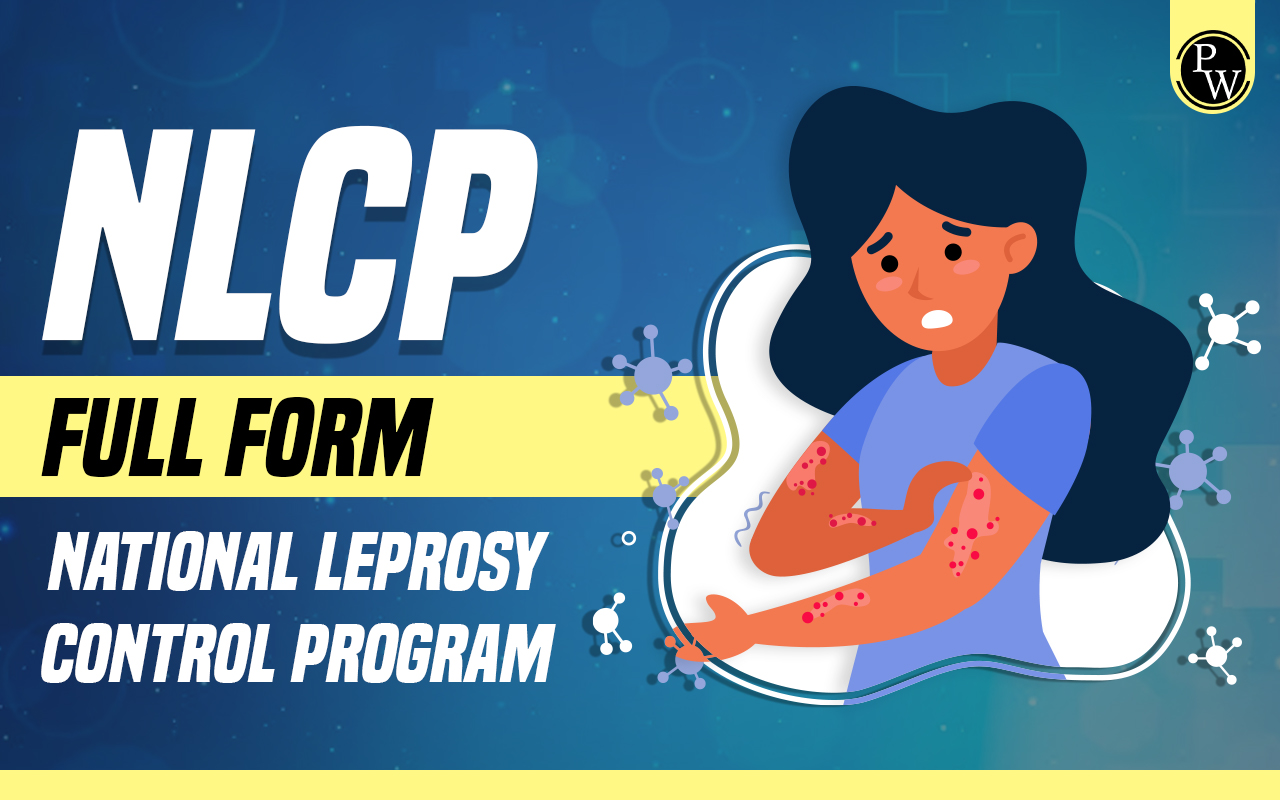
NLCP full form: The Full Form of NLCP is the National Leprosy Control Program. NLCP is a government-run initiative to prevent and treat leprosy. Managed by the Ministry of Health and Family Welfare, this program receives support from the World Health Organization (WHO) and other international organizations.
NLCP has been implemented in all leprosy-endemic countries. The main objective of the National Leprosy Control Program (NLCP) is to reduce the prevalence of leprosy and its associated disabilities while improving the quality of life for those affected by the disease. For more comprehensive details about NLCP, please refer to the following information.
The NLCP full form in English is the National Leprosy Control Program. NLCP was established with the aim of eradicating leprosy as a public health problem. The program is a collaborative effort between the government, healthcare institutions, and non-governmental organizations. It focuses on implementing strategies to detect, diagnose, treat, and rehabilitate leprosy patients while raising awareness and reducing the stigma associated with the disease.
The NLCP Full Form in Hindi is नेशनल लेप्रोसी कंट्रोल प्रोग्राम है। एनएलसीपी की स्थापना सार्वजनिक स्वास्थ्य समस्या के रूप में कुष्ठ रोग को खत्म करने के उद्देश्य से की गई थी। यह कार्यक्रम सरकार, स्वास्थ्य देखभाल संस्थानों और विभिन्न गैर-सरकारी संगठनों के बीच एक सहयोगात्मक प्रयास है। यह कुष्ठ रोगियों का पता लगाने, निदान, उपचार और पुनर्वास के लिए रणनीतियों को लागू करने पर ध्यान केंद्रित करता है, साथ ही जागरूकता बढ़ाने और बीमारी से जुड़े कलंक को कम करने पर भी ध्यान केंद्रित करता है।
The NLCP Full Form in Medical is the National Leprosy Control Program. The NLCP employs several diagnostic methods, including clinical examination, skin smears, and histopathological analysis. These methods aid in accurately diagnosing leprosy cases and determining the appropriate treatment plan.
| October Month’s Medical Days | |
| World Heart Day | Breast Cancer Awareness Month |
| World Mental Health Day | World Arthritis Day |
| Global Handwashing Day | World Food Day |
The full form of NLCP is the National Leprosy Control Program. The current state of India's global drug policy and National Law on Expanded Access to Medicines and Treatment (NLEP) demonstrates a lack of strong centralization. Widespread recognition exists regarding issues with coordination among different components of NLEP, leading to reduced efficacy. To address this challenge, a potential solution is decentralizing NLEP to States and districts. As healthcare spending continues to follow its present trajectory, there has been a reduction in federal investment in healthcare, particularly in programs administered through the CMS (Centers for Medicare and Medicaid Services). To satisfy the increased need for mental health services, a renewed emphasis on Disability Prevention and Medical Rehabilitation (DPMR) is being placed. Regular monitoring and periodic evaluations are implemented to ensure effectiveness.
The NLCP full form is the National Leprosy Control Program. The primary objective is to reach a point where the prevalence of leprosy, classified as an infection that hasn't improved despite appropriate treatment, is below one case per 10,000 individuals in all districts of India. Furthermore, efforts are being made to enhance disability prevention and medical rehabilitation for individuals affected by leprosy, reducing the stigma associated with the disease.
The full form of NLCP is the National Leprosy Control Program. General Health Care Services has been authorized to deliver comprehensive leprosy services, resulting in early diagnosis and prompt Multidrug Therapy (MDT) treatment for new leprosy cases through regular and targeted efforts. A household contact survey has been conducted to facilitate the early detection of cases, with Accredited Social Health Activists (ASHAs) playing a vital role in detecting and ensuring the timely completion of leprosy treatment. Rehabilitation and medical care for individuals with disabilities are being enhanced. Efforts to reduce social prejudice and discrimination involve leveraging local and mass media. Dr. John Rath emphasized the significance of self-care in combating ignorance, urging individuals to be vigilant about their symptoms and indicators. In 2000-2001, Tripura eradicated leprosy, bringing down the caseload to one per 10,000 people.
In the mid-1990s, multidrug therapy (MDT) was introduced in phases, marking a significant advancement in treating leprosy. Leprosy was eradicated nationally in 2005, a great victory in the fight against this old disease.
We implemented a 14-day Outbreak Control Cases Campaign (14 days) and a 15-day Active Case Detections Campaign (15 days) in high-endemic regions to respond quickly to outbreaks and actively find and treat leprosy cases. In under-endemic regions, the Focused Leprosy Campaign (FLC) aims to cure leprosy and prevent its resurgence. To improve early detection, leprosy suspect surveillance using the ASHA method (ABSULS) has been initiated, enhancing the ability to identify potential cases and provide timely interventions. A Disease Study focusing on Grade II Disability Epidemiological Investigation has been undertaken to understand the impact of leprosy-related disabilities better and develop strategies to mitigate their effects. These initiatives reflect the ongoing commitment to combat leprosy and achieve better health outcomes for those affected by the disease. With continued efforts and research, we aim to reduce leprosy's burden further and ensure the well-being of affected individuals and communities.
Check NEET Exam Important Links
| NEET Exam Important Links | |
| NEET Syllabus | NEET Sample Paper |
| NEET Notes | NEET Previous Year Question papers |
